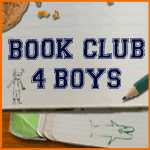Project description:
Develop a website to help parents organize FHE lesson plans that will introduce a second language to their family. Help parents use the resources the LDS church already provides in other languages and demonstrate how to use these materials in Family Home Evenings to teach a second language.
Project context:
The audience will be families who want to learn a second language or help preserve a native language. (Bi-nationality couples can use these FHE lessons plans to formally introduce this language and culture to spouse and children and help preserve their family heritage.)
Project rationale:
Our world is more and more a global community. Knowing a second language is very useful in relating to multicultural neighbors and also opens up more job opportunities. Parents try to prepare their children to be successful in their future. Parents themselves might be trying to learn a language for their own professional development. Learning a second language as a family, makes the second language more meaningful and might help with the success of how fluent they become.
Some families who have a child on a mission- might use these FHE lessons as a way to help younger children feel connected to their sibling. Making the acquisition of a second language more personal- knowing their missionary will be writing home with information about this culture and country in their weekly letters.
Other international families can use these FHE lesson plans to learn English. By establishing a foundation at home, this will help their children find better jobs in the future.
Still other families might want to learn a second language in preparation for a family vacation to a different country.
And lastly, learn a new language is fun! You will be surprised how many people you meet in your wards, neighborhoods and communities that are from other countries and know these languages. Learning a second language and culture will promote good feelings and stronger friendships as you take interest in the cultures and customs of other people.
Instructional objectives:
At the end of this online training, parents will be able to…
1) Plan a FHE Language Lesson once a month using our basic lesson plans and resources the LDS Church has in other languages. (Primary Songs, Hymns, Ensigns)
2) Practice this second language in their home regularly, by using printable vocabulary cards they place around the house to prompt language learning as a family.
3) Get them excited and feel empowered that they really CAN learn a language as a family even if they are not fluent.(By identifying native speakers among people they know! Neighbors, Return Missionaries, Ward Members, Co-workers.) By inviting these people to attend their once a month FHE Language lesson and share their experiences.
Video instruction: Highlighting the steps of starting a FHE group, using Church materials to enhance FHE lessons and watching a real Language FHE night.
Links to: LDS.org website where they can find Primary songs in different Languages, find publications by the church in different languages such as Book of Mormons and Ensign Magazines.
ACTUAL FHE LESSON Outlines
Specifically on learning-- English to Spanish.
Printable: 6 Actual FHE Lessons that families print and use to learn their language.
Assessment:
I will have a check list they can use to organize their Language FHE Lesson and then encourage they come back and give feedback and share their experience.



